| Origem | Literatura Estrangeira |
|---|---|
| Quantidade de Páginas | 128 |
| Acabamento | Capa Comum |
| Autores | Roger Ewald Lang |
| Idioma | Inglês |
| Edição | 0 |
| Selo | Lang Book Publishing Limited |
 Nosso Eu em pedaços
Nosso Eu em pedaços
Todos Livros
R$ 59,90 à vista Cancioneiro da alegria
Cancioneiro da alegria
Editora Viseu
R$ 67,35 à vista Corinto e a refeição eucarística: Marca identitária, pertença religiosa e outras decodificações
Corinto e a refeição eucarística: Marca identitária, pertença religiosa e outras decodificações
Ambigrama
R$ 50,90 à vista Nos domínios da alma
Nos domínios da alma
Editora Viseu
R$ 45,90 à vista Ciência Quântica: Carmessita e Eu (O Poder dos Orixas)
Ciência Quântica: Carmessita e Eu (O Poder dos Orixas)
Editora Viseu
R$ 47,90 à vista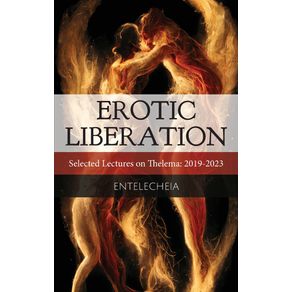 Erotic Liberation
Erotic Liberation
Lapis Mercurii Productions
R$ 186,15 ou até 3x sem juros The Historical Tell
The Historical Tell
DeWard Publishing
R$ 145,70 ou até 2x sem juros The Protestant Ethic and the Spirit of Capitalism
The Protestant Ethic and the Spirit of Capitalism
Pantianos Classics
R$ 166,51 ou até 3x sem juros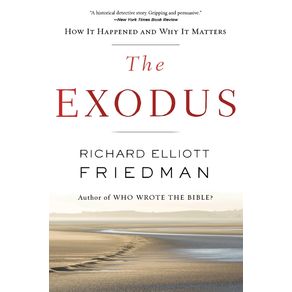 Exodus, The
Exodus, The
HARPERCOLLINS
R$ 130,17 ou até 2x sem juros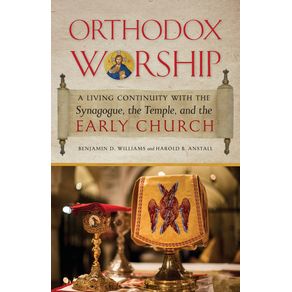 Orthodox Worship
Orthodox Worship
Ancient Faith Ministries
R$ 121,71 ou até 2x sem juros Healing Your Wounded Soul
Healing Your Wounded Soul
Ancient Faith Ministries
R$ 106,42 ou até 2x sem juros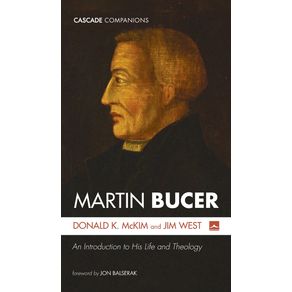 Martin Bucer
Martin Bucer
Wipf and Stock Publishers
R$ 214,03 ou até 3x sem juros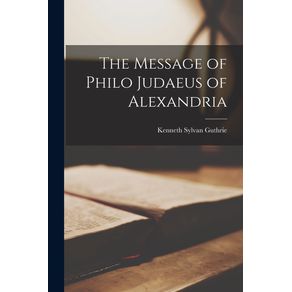 The Message of Philo Judaeus of Alexandria
The Message of Philo Judaeus of Alexandria
Legare Street Press
R$ 132,01 ou até 2x sem juros Historia da America portugueza desde o anno de mil a quinhentos do seu descobrimento até o de mel e
Historia da America portugueza desde o anno de mil a quinhentos do seu descobrimento até o de mel e
Legare Street Press
R$ 190,78 ou até 3x sem juros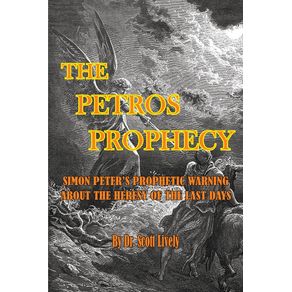 The Petros Prophecy
The Petros Prophecy
The Old Paths Publications
R$ 121,52 ou até 2x sem juros Benzedura Ancestral: Saberes de ontem para o hoje bendito
Benzedura Ancestral: Saberes de ontem para o hoje bendito
Instituto Cultural Umbanda Eu Curto
R$ 39,00 à vista Surrealismo Devocional e Teológico: Entre a Razão e as Manifestações da Imaginação no Contexto da Narrativa Bíblica
Surrealismo Devocional e Teológico: Entre a Razão e as Manifestações da Imaginação no Contexto da Narrativa Bíblica
Todos Livros
R$ 69,90 à vista Aprendendo a amar: Uma garota, um segredo e uma nova vida
Aprendendo a amar: Uma garota, um segredo e uma nova vida
Editora Viseu
R$ 82,18 à vista Não desligue os meus aparelhos
Não desligue os meus aparelhos
Editora Viseu
R$ 72,90 à vista O Enlevo Espiritual
O Enlevo Espiritual
Editora Viseu
R$ 36,90 à vista O que você deveria saber sobre você e não sabe: Então descubra! (A escolha)
O que você deveria saber sobre você e não sabe: Então descubra! (A escolha)
Editora Viseu
R$ 47,90 à vista Thereza: A procura de paz
Thereza: A procura de paz
Editora Viseu
R$ 33,90 à vista Diário de um ansioso
Diário de um ansioso
Editora Viseu
R$ 34,90 à vista Exodus, The
Exodus, The
HARPERCOLLINS
R$ 130,17 ou até 2x sem juros A Pessoa no Espelho
A Pessoa no Espelho
Klisia
R$ 104,52 ou até 2x sem juros Healing Your Wounded Soul
Healing Your Wounded Soul
Ancient Faith Ministries
R$ 106,42 ou até 2x sem juros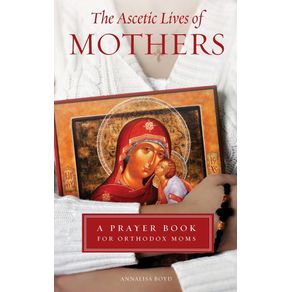 Ascetic Lives of Mothers
Ascetic Lives of Mothers
Ancient Faith Ministries
R$ 105,27 ou até 2x sem juros Joshua (OTL)
Joshua (OTL)
Presbyterian Publishing
R$ 329,60 ou até 3x sem juros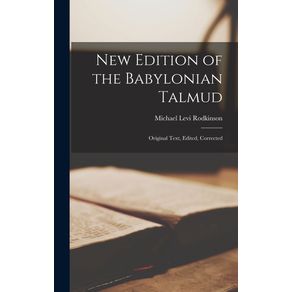 New Edition of the Babylonian Talmud; Original Text, Edited, Corrected
New Edition of the Babylonian Talmud; Original Text, Edited, Corrected
Legare Street Press
R$ 235,40 ou até 3x sem juros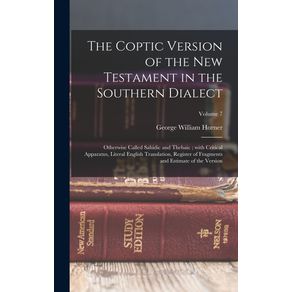 The Coptic version of the New Testament in the Southern dialect
The Coptic version of the New Testament in the Southern dialect
Legare Street Press
R$ 297,34 ou até 3x sem juros Surrealismo Devocional e Teológico: Entre a Razão e as Manifestações da Imaginação no Contexto da Narrativa Bíblica
Surrealismo Devocional e Teológico: Entre a Razão e as Manifestações da Imaginação no Contexto da Narrativa Bíblica
Todos Livros
R$ 69,90 à vista Pelos caminhos do pescador
Pelos caminhos do pescador
Editora Viseu
R$ 101,54 ou até 2x sem juros História de uma fé: Um romance sobre a busca da espiritualidade
História de uma fé: Um romance sobre a busca da espiritualidade
Editora Viseu
R$ 95,07 à vista Aprendendo a amar: Uma garota, um segredo e uma nova vida
Aprendendo a amar: Uma garota, um segredo e uma nova vida
Editora Viseu
R$ 82,18 à vista Corinto e a refeição eucarística: Marca identitária, pertença religiosa e outras decodificações
Corinto e a refeição eucarística: Marca identitária, pertença religiosa e outras decodificações
Ambigrama
R$ 50,90 à vista On Fate
On Fate
Indy Pub
R$ 107,71 ou até 2x sem juros The Historical Tell
The Historical Tell
DeWard Publishing
R$ 145,70 ou até 2x sem juros The Protestant Ethic and the Spirit of Capitalism
The Protestant Ethic and the Spirit of Capitalism
Pantianos Classics
R$ 166,51 ou até 3x sem juros Exodus, The
Exodus, The
HARPERCOLLINS
R$ 130,17 ou até 2x sem juros Joshua (OTL)
Joshua (OTL)
Presbyterian Publishing
R$ 329,60 ou até 3x sem juros Dreaming Through Darkness
Dreaming Through Darkness
Random House
R$ 154,13 ou até 3x sem juros The Message of Philo Judaeus of Alexandria
The Message of Philo Judaeus of Alexandria
Legare Street Press
R$ 132,01 ou até 2x sem juros The Coptic version of the New Testament in the Southern dialect
The Coptic version of the New Testament in the Southern dialect
Legare Street Press
R$ 297,34 ou até 3x sem juros The Petros Prophecy
The Petros Prophecy
The Old Paths Publications
R$ 121,52 ou até 2x sem juros How to Inhabit Time
How to Inhabit Time
Baker Publishing Group
R$ 151,04 ou até 3x sem juros